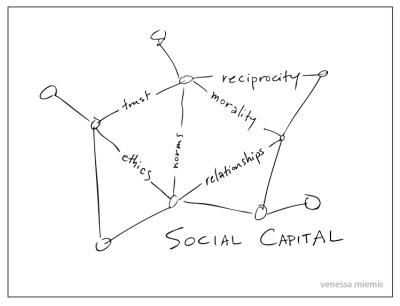What’s the Return on You? For professional service providers, it’s imperative to speak the language of numbers to the accountants and business managers that run corporations. Many CFOs question the value of public relations, the power of a brand name, or the role of reputation management. They want to know one thing: Return on Investment.
Wired for hard costs—building and energy bills, employee health insurance, computer fees—investments in soft skills and sustaining customer relationships are difficult for them to quantify. It’s even more challenging when we add social media into the service mix. Tweeting and blogging as marketing? That’s why in every client pitch, we prepare for the CFOs in the room. As we passionately show our creative skills and share our success stories, we are careful to include real costs and deliverables.
As a business owner and the payer of our firm’s fixed costs, I understand that language. Our team knows that “Every day we wake up unemployed.” Giving 110% to every project and every client reminds us that in addition to a client expecting significant Return on Investment, they deserve significant R.O.Y.—Return on You.
Just what do we sell and what do we freely give?
Here are seven services that have no price tag, but help create long-term client relationships and significant R.O.Y.
1. Loyalty and protection.

In the 1954 TV series Lassie, a collie dog plays with and guards young Timmy night and day. His loyalty is palpable. Lassie barks when he senses impending trouble, protects Timmy from harm, and intuitively runs for help when needed. A loyal PR firm protects its clients’ trade secrets and seeks their best interests in every interaction.
